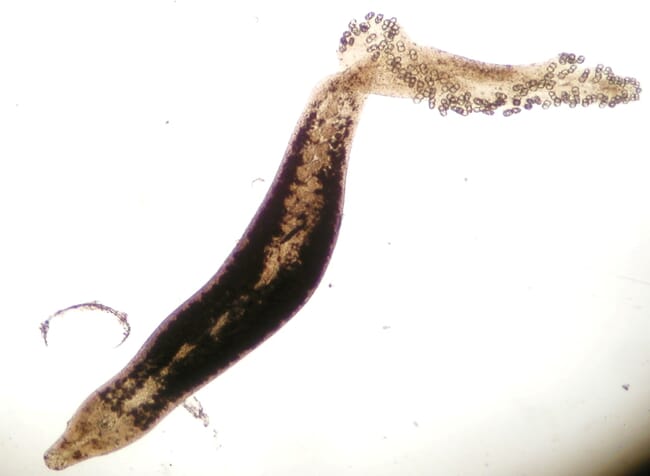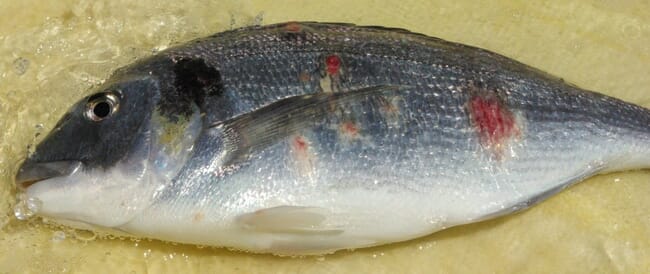The forum, which is open to all stakeholders in the industry until 13 July, is part of the EU-funded four-year MedAID (Mediterranean Aquaculture Integrated Development), programme, which aims to increase the overall competitiveness and sustainability of the Mediterranean marine finfish farming sector.
The forum intends to gather the insights offered by fish farmers, field diagnosticians, laboratories and relevant authorities in charge of disease management in Mediterranean aquaculture in order to provide a comprehensive and accessible knowledge platform for the disease.

© Ivona Mladineo
As the organisers, Snježana Zrnčić, Dolors Furones, Bernardo Basurco, explain to The Fish Site: “Sparicotylosis, together with noda virus, is the most important disease affecting farmed gilthead sea bream in the region, with the highest prevalence occurring in late spring and summer. It induces mortalities, and worsens both the food conversion ratio and growth rate.
The MedAID project, which was launched in Zaragoza in May 2017, will address all parts of the value chain including nutrition and feeding practices, animal health and welfare, genetics and breeding, environmental impact, consumer perception and marketing aspects, the economic efficiency and performance of the sector, and regulatory constraints. It has received vocal support from the region’s aquaculture producers.
As the project leads explain: “In response to the causes behind the stagnation of the Mediterranean marine fish farming sector, in 2016 the European Commission made a research call under the H2020 programme, called ‘Improving the technical performance of Mediterranean aquaculture’, in principle to finance one project. However, due to the importance of the topic, the demand from the producers, and the high quality of the proposals submitted, the Commission decided to finance two projects: MedAID and PerformFISH. In both cases the sector is involved both through direct participation of aquaculture companies and with the participation of main producer's associations.”

© Alain LeBreton
The new forum follows hot on the heels of the recent merger of three of the region’s largest sea bass and sea bream producers - Andromeda, Nireus, and Selonda – which was announced on 21 June, and is symptomatic of how Mediterranean aquaculture is evolving.
“Factors that have determined the development of Mediterranean aquaculture include the opening up of new and bigger markets, the improvement of feed quality and the increased movement of farms to increasingly exposed locations, where it is more expensive and technologically complex to produce fish,” say Zrnčić, Furones and Basurco.
"In these circumstances, higher levels of capital are needed, meaning increasing industry concentration. We hope the merger is a positive thing – Andromeda is already cooperating with MedAID to develop a combined SNP array for sea bream and sea bass. This new situation may facilitate further cooperation.”
All interested parties can register to the forum following the Guideline for users.
Future forums
The project is organised with the collaboration of the European Association of Fish Pathologists (EAFP), the European Union Reference Laboratory (EURL) for Fish Disease, and is open to members of other H2020 projects PerformFISH and ParaFishControl.
Meanwhile the project leads are already planning further forums on subjects including noda virus, rash syndrome, Photobacteriosis, emergent Vibrio and Aeromonas infections.




